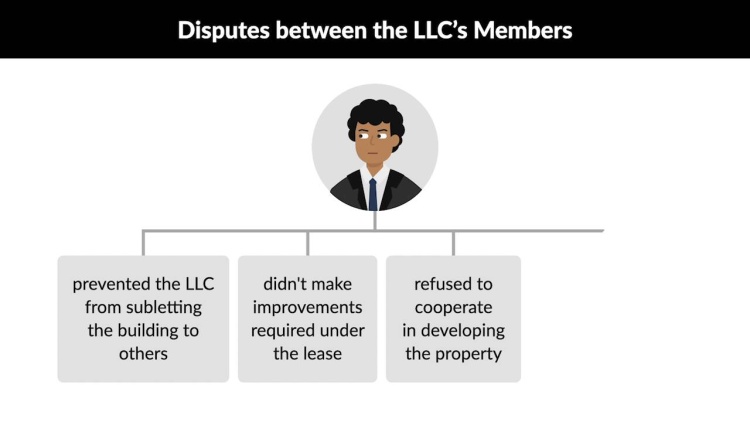Pappas v. Tzolis
New York Court of Appeals
982 N.E.2d 576 (2012)
- Written by Rose VanHofwegen, JD
Facts
Steve Pappas, Constantine Ifantopoulos (plaintiffs), and Steve Tzolis (defendant) formed an LLC to lease a Manhattan building. Pappas and Tzolis each contributed $50,000, and Ifantopoulos $25,000, for proportionate shares. The operating agreement explicitly permitted the members to engage in competing businesses. Tzolis posted the $1,192,500 security deposit and sublet the building to a company he owned. Within a few months, numerous disputes arose. Pappas and Ifantopoulos claimed that Tzolis blocked them from leasing the building to others, had not made improvements required under the lease, and had not listed the property with any real estate brokers. Meanwhile, Tzolis took sole possession of the property without paying rents due. About six months later, Tzolis bought out Pappas and Ifantopoulos for $1,000,000 and $500,000 respectively—20 times what they paid for their interests just one year earlier. The closing documents stated that the sellers had performed due diligence, engaged legal counsel, had not relied on any outside representations made by Tzolis, and specifically disclaimed that Tzolis held any fiduciary duties to the sellers. About six months later, Tzolis assigned the lease to a developer for $17,500,000. Pappas and Ifantopoulos believed Tzolis surreptitiously negotiated the deal before he bought them out and sued for breach of fiduciary duty. The trial court dismissed for failure to state a claim, citing the disclaimers in the operating agreement and closing documents. The appellate division partially reversed but granted Tzolis leave to appeal further to the New York Court of Appeals.
Rule of Law
Issue
Holding and Reasoning (Pigott, J.)
What to do next…
Here's why 907,000 law students have relied on our case briefs:
- Written by law professors and practitioners, not other law students. 47,100 briefs, keyed to 996 casebooks. Top-notch customer support.
- The right amount of information, includes the facts, issues, rule of law, holding and reasoning, and any concurrences and dissents.
- Access in your classes, works on your mobile and tablet. Massive library of related video lessons and high quality multiple-choice questions.
- Easy to use, uniform format for every case brief. Written in plain English, not in legalese. Our briefs summarize and simplify; they don’t just repeat the court’s language.





